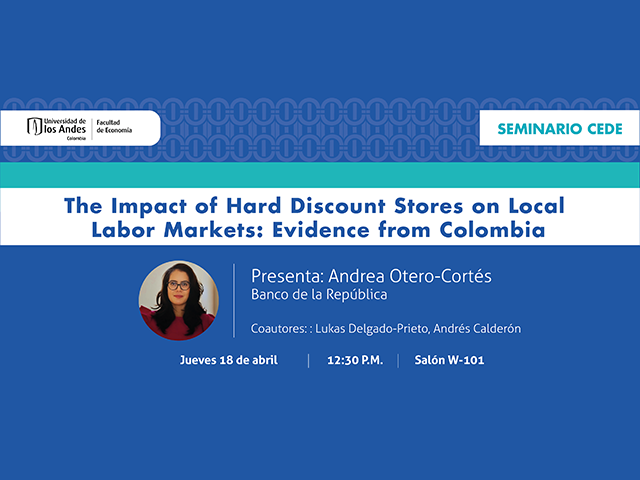Seminario CEDE - Andrea Otero-Cortés

Hard discount stores (HDS) have changed the dynamics of the traditional retail sector by selling a basket of products at very low prices. This business model has gained significant market shares in many countries, but little is known about its impact on the labor market. To fill this gap in the literature, we study the impact of the entry of hard discounters on local labor markets in Colombia. Leveraging the staggered geographic expansion of major discount chains throughout the country as part of our empirical strategy and collecting information from different sources, such as administrative records on social security and household surveys, we analyze the impact of these stores on labor formality and tax collection. Our results show that the arrival of HDS in a municipality increases local formal employment, especially in retail, manufacturing, and agriculture. This suggests that there are significant spillover effects from retail to other industries, as most of the goods these stores sell are locally produced. As for the informal sector, increased competition between formal and informal businesses has no significant effect on informal employment. However, there seems to be a decline in the labor income of informal retailers, suggesting that the margin of adjustment is not through lower employment but via lower earnings.

